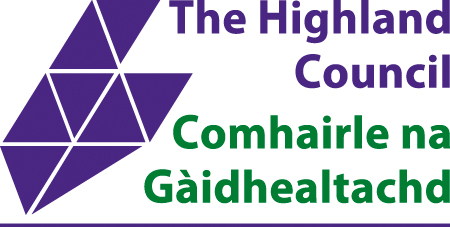Council tax rise proposed to support investment in Highland

Highland Council is set to consider a proposed 7% increase to Council Tax for 2025-26 at its budget meeting on 6 March.
A 7% increase for 2025/26, represents a 5% core increase to balance the budget for the year, plus 2% earmarked for capital investment through the Highland Investment Plan. This is in line with an approach agreed by council in its approval of a £2 billion Highland Investment Plan strategy in May 2024.
The Plan will see wide ranging investment across communities in the Highlands, with over £1bn of capital investment in schools and roads over the next 10 years in phase one of the programme.
Initial seed-funding of £2.8m was approved in May 2024 to create £50m of capital to start the investment fund, with the first phase of investment approved in December 2024.
Ringfencing 2% on council tax each year will generate capital to maintain the funding plan over the long-term. The ongoing funding must be agreed each year by council as part of the budget setting process and 2025-26 is the first year that councillors will be asked to approve the funding through Council Tax.
The funding mechanism will enable the council to borrow significant capital to invest in a long-term infrastructure investment programme for the Highland area.
Convener of the council, Bill Lobban, said: “This funding mechanism is a radical solution to the significant challenges and costs we face in maintaining and renewing our buildings and roads. The Highland Investment Plan responds to the widespread public support for further investment in the school estate, as well as emerging critical issues that we face in dealing with schools with RAAC and HACC (High alumina cement concrete).
“An investment programme like this will create jobs and economic prosperity across the region and bring transformation to Highland communities over the next 10 years.”
Leader of the council, Raymond Bremner, added: “The Highland Investment Plan is one of the biggest investment programmes in Scotland and the largest ever for Highland.
“The first 10 years of the Investment Programme will see investment in an initial phase of projects which will be place-based. The first of these include Dingwall, with £40m to £50m investment to redevelop education and community facilities across the town in addition to housing, infrastructure and depots, with a similar approach in Thurso, Alness, Brora, Dornoch, Golspie and Invergordon in the coming years.”
He added: “In addition to improving our school estate and depots, the planned investment will help to address the ongoing challenges we face in maintaining over 4000 miles of Highland roads and sustaining rural communities.
“A long-term investment programme for roads and transportation will ensure a sustainable approach to investment, contractor procurement, and opportunities to attract match funding from developer contributions or other external funding sources. There will also be significant local contracting and business opportunities, and wider community economic benefit associated with the delivery of the Investment Plan.”
The financial report going to council on 6 March, sets out recommendations to deliver a balanced budget, and includes information relating to budget assumptions, risks, budget pressures, growth and investment, as well as savings, reserves and council tax.
All previous planning assumptions have been revised and updated within this report and reflect the implications of the UK Government Budget and Scottish Government draft budget 2025/26.







